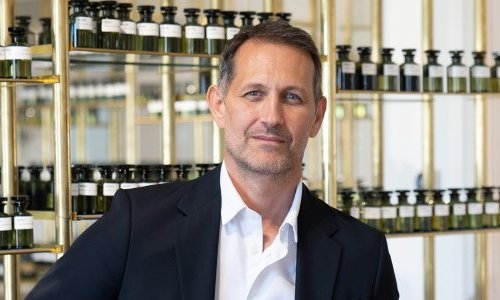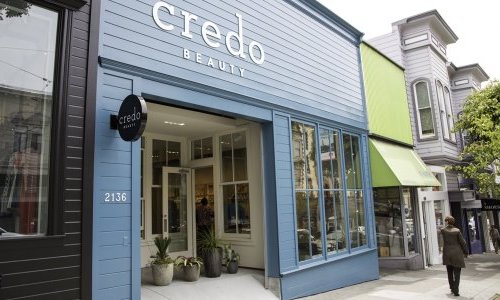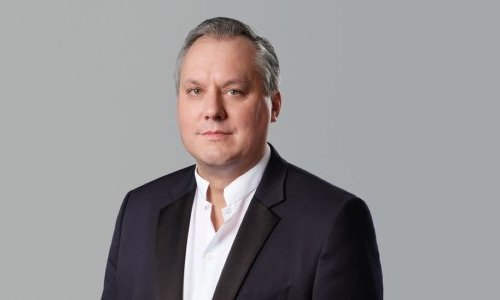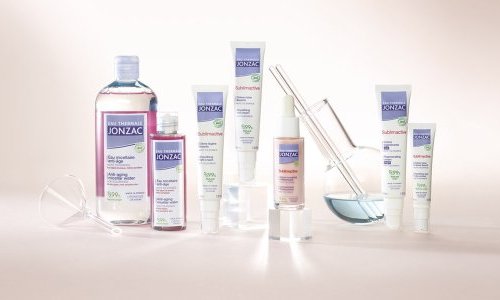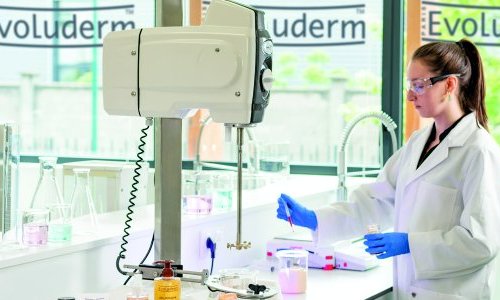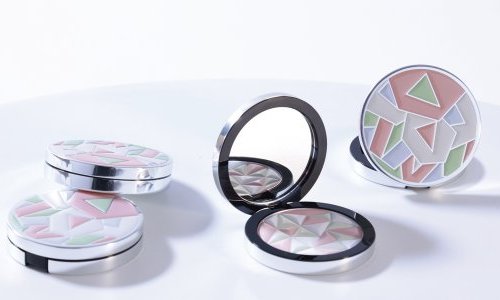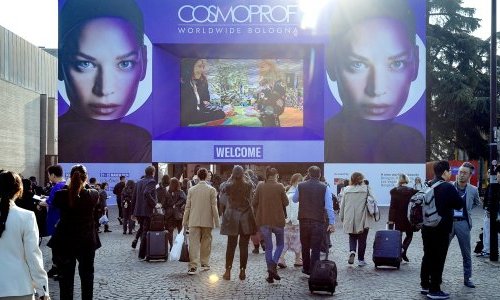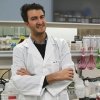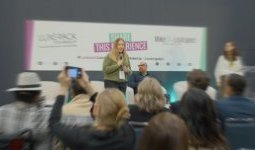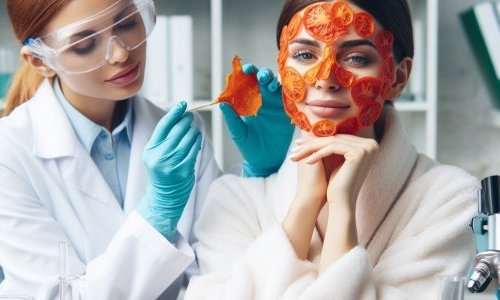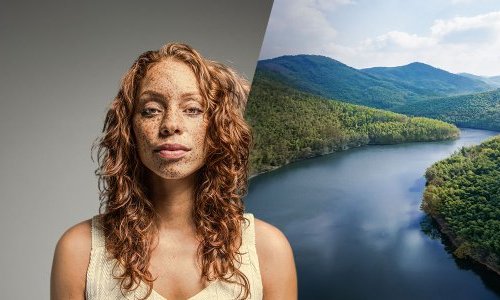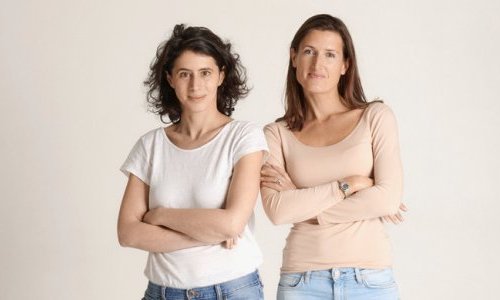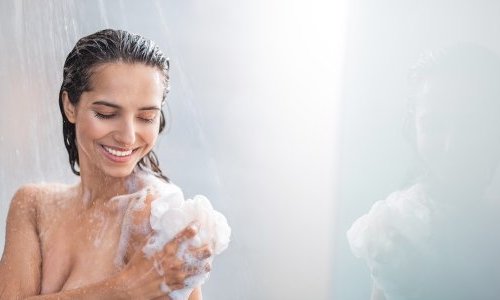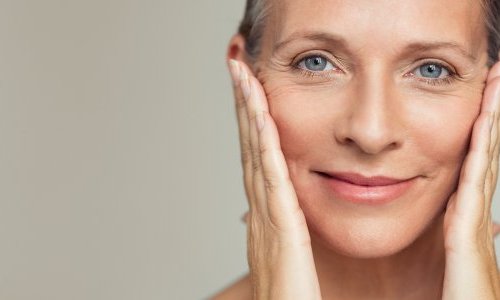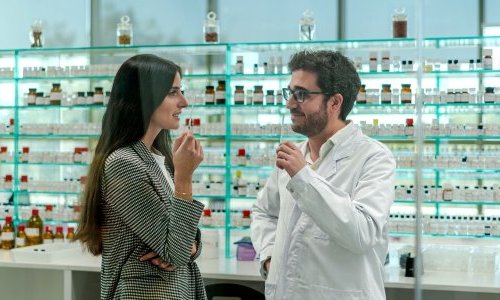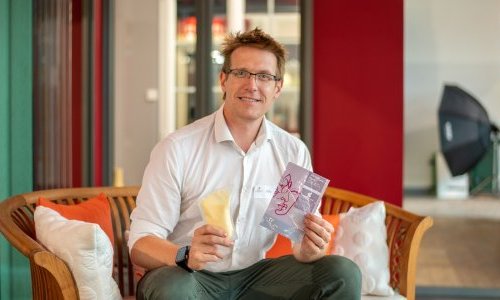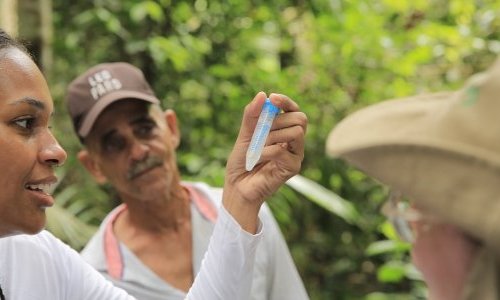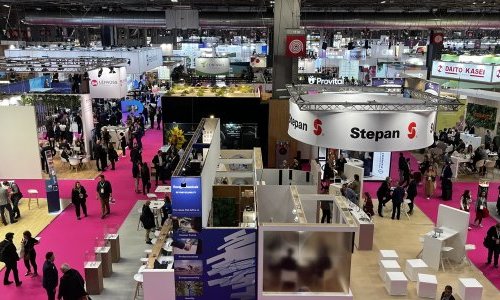Premium Beauty News - What is the weight of soaps on today’s cosmetics market in Europe?
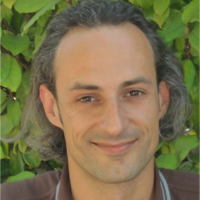
Laurent Bousquet - The European production of soap would exceed 850,000 tonnes. It has been decreasing from 1 to 2% a year since 10 years in favour of liquid soaps.
There are two categories: household soaps that belong to the sector of detergents and toilet soaps that belong to the cosmetics sector. These markets correspond to different trade organizations, but it is difficult to separate them.
Soap would account for over 20% of the bath and shower products market in Europe and the United States.
Premium Beauty News - An old story that the one of soap?
Laurent Bousquet - Quite old, indeed! Soaps are the oldest known surfactants, obtained from the reaction of a base on a fatty substance. Their story began more than 5,000 years ago but their exact chemistry is only known since 1823.
As for the first synthetic surfactant it appeared in 1916. Their use became widespread as of 1945 to the detriment of soaps.
Despite its age, soap can address our current concerns. Indeed, its manufacturing process can be friendly with the environment. There are some saponification techniques that use neutral oils or refined fatty substances thus allowing making soap without any rejection and thus no pollution.
Soaps are also biodegradable. They are easily removed in sewage treatment plants and have very low toxicity if released into the environment.
Finally, soaps rely on renewable resources. All animal and vegetable fats can potentially be transformed into soap, even if it is necessary in most cases to combine them with different oils or fats to obtain a commercially interesting soap (consistency, volume of foam). Between 2000 and 3000 oil plants exist on the planet, not to mention all the oilseeds.
Premium Beauty News - Therefore, soaps are sustainable products?
Laurent Bousquet - They have the potential for that. Even if today, for economic reasons, South-East Asia has become the world’s leading producer of soaps. These soaps are derived from palm oil, to the detriment of primary forests; and they also require the use of a lot of fossil fuels to be shipped all over the world.
A number of shorter circuits are emerging again, based on sometimes very ancient traditions: saponification derived from olive and laurel oils in Syria, shea butter in Mali or Guinea, argan oil in Morocco, locally manufactured through a cold process.
Premium Beauty News - Soaps are sometimes criticized and blamed for drying or irritating the skin.
Laurent Bousquet - Contrary to popular belief, soaps are well tolerated by all skin types. They are in particular responsible for a fairly low rate of allergies. If they are sometimes accused of drying or irritating the skin, it is also because they are not always formulated and manufactured in the prospect of modern needs but in a purely economic logic or with the use of obsolete technology.
Premium Beauty News - So, finally, is it really a product of the future?
Laurent Bousquet - Yes. When we’ll realize the extent of global pollution and the toxicity related to the manufacturing process or to the use of synthetic surfactant, and when synthetic surfactants become more expensive to manufacture than soap because of rising oil prices and the widespread of “carbon taxes”. This is the reason why I imagined the creation of the Institute of Soap.
Premium Beauty News - How must one proceed to become a soap "specialist"?
Laurent Bousquet - The needs are extremely varied and there is no specific training focusing on soap. However a training exists in the field of fatty substances and chemists all have heard of saponification.
Companies need trained personnel in manufacturing, packaging, testing, especially with the gradual introduction of Good Manufacturing Practices.
Training can therefore take the form of modules, which are inserted in the initial professional training. Equivalent needs exist in continuous training for employees with a position or under reclassification.
To note that a number of micro-enterprises are emerging in the field of soap, using simple methods of saponification with a cold process, widely available on the Internet. This activity is similar to craft, and people involved are eager to benefit from qualifying courses.
Many regional structures close to economic actors can promote these courses : COSMED, the University of fragrances and flavours (Université Européenne des Senteurs & Saveurs - UESS), etc.
Premium Beauty News - Is the research component important for the Institute of Soap?
Laurent Bousquet - Whether the training is individual or in a group, support will be offered in terms of funding, research and selection of partners and for the project implementation.
Topics are already planned, such as the ones in line with the goal of:
– promoting soap like a environmentally friendly product. (E.g. Characterization of biodegradability in different sectors),
– ·promoting soap as a sustainable product. (E.g. comparison of the "carbon" cost of various personal care products and soaps),
– ·promoting innovation and economic development. (E.g. studying the incidence of soaps on microbial growth).
It is also the case of a number of topics related to research and development of new oils.
Premium Beauty News - This will surely require a significant effort in terms of communication?
Laurent Bousquet - Yes and obviously we will need a dedicated website, and our participation to trade shows will have to be considered with different partners.
Finally, the creation of an event intended for the general public on the soap, its history and its uses will also be a great help to promote the benefits of soap compared to other hygiene products.
Premium Beauty News - Who are or will be your partners?
Laurent Bousquet - We are targeting all companies in the sector: manufacturers, brand owners, raw material suppliers and importers.
There are also some experts. Several advisers, companies or structures already operating in this area may well become interesting partners. On the training side, many existing training courses already include modules related to soap. Several laboratories have already expressed their interest to collaborate in research programs in France but also with countries around the Mediterranean.
And then there are also some important collectors and many people who once considered the creation of a Museum and who will be an important support during the general public day in particular.

